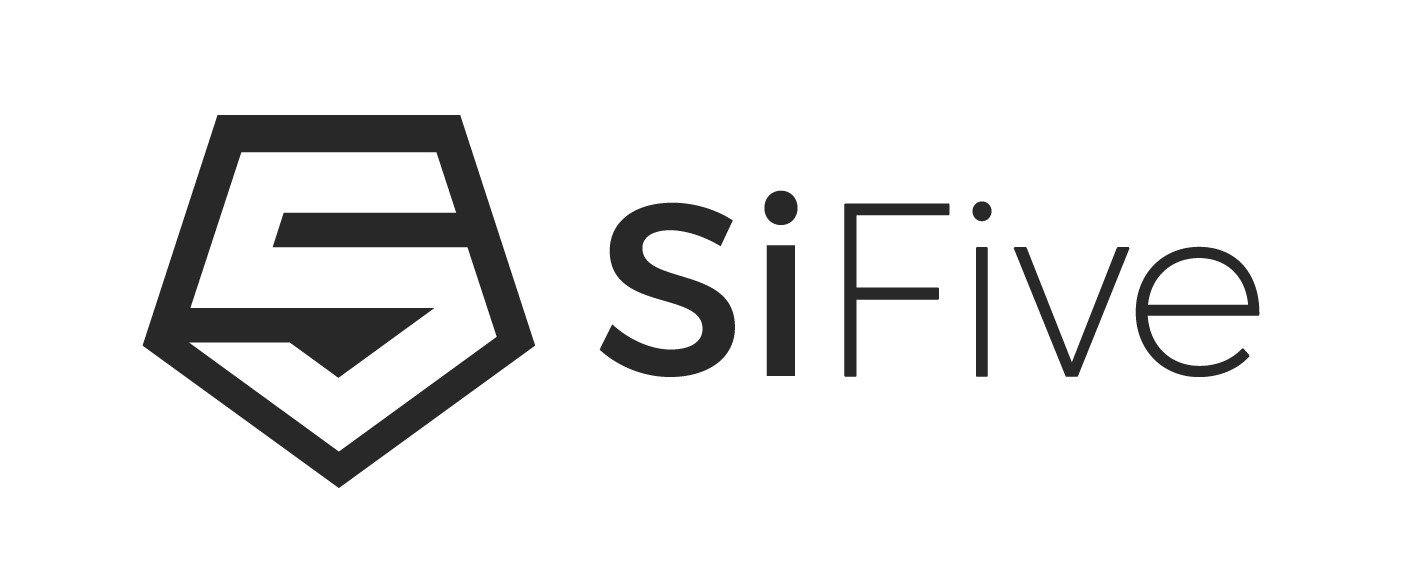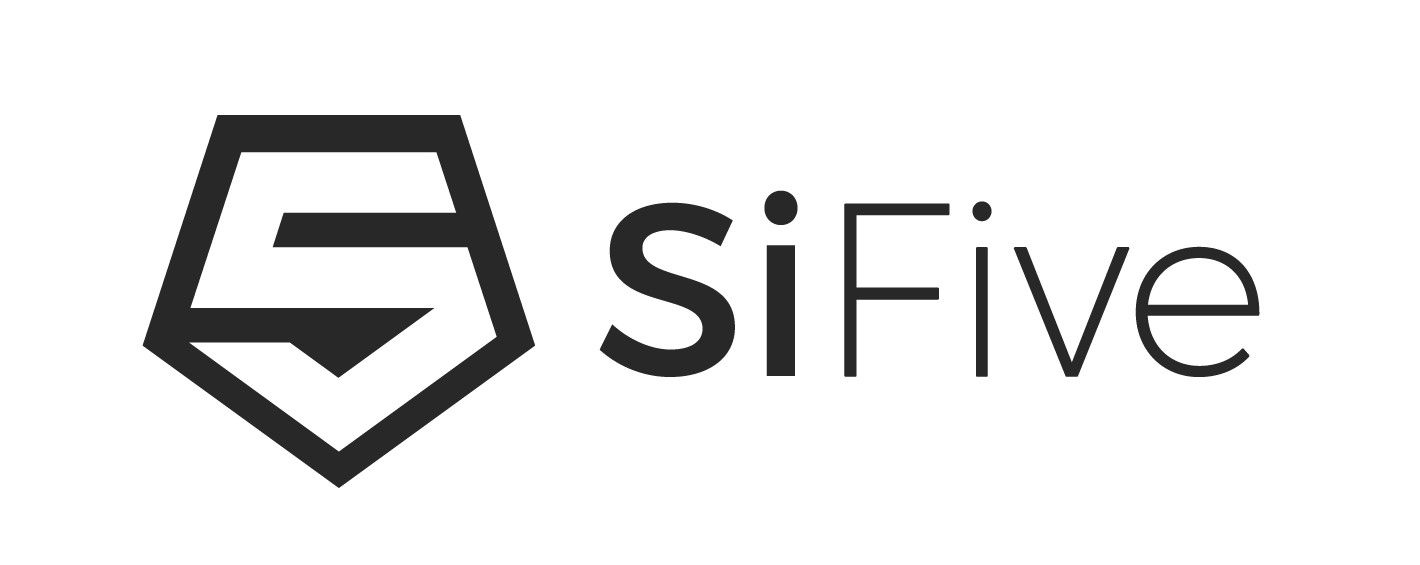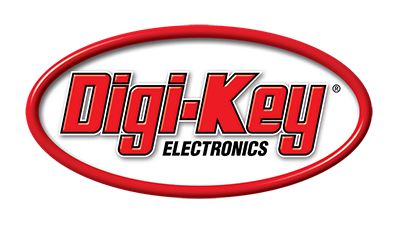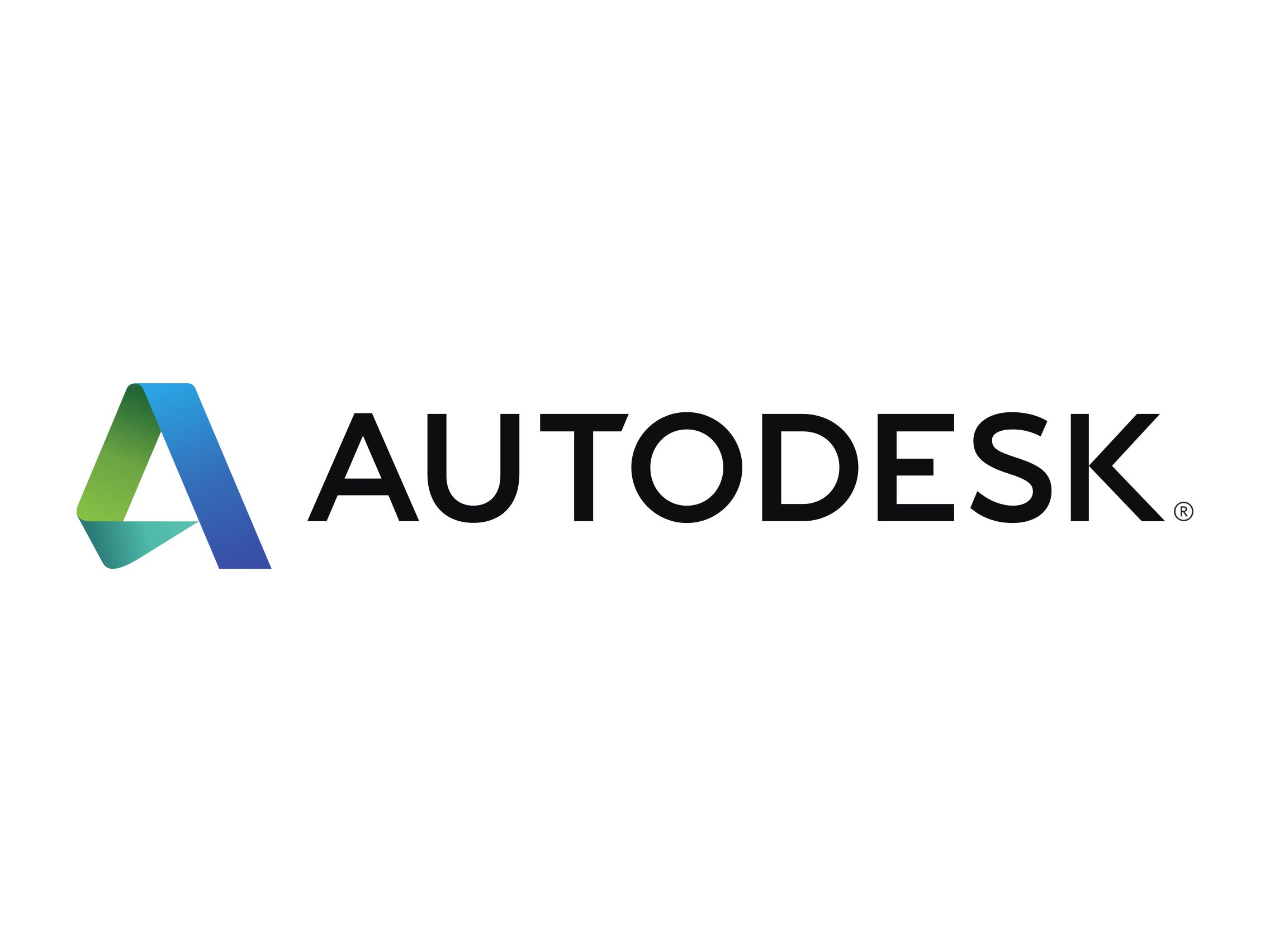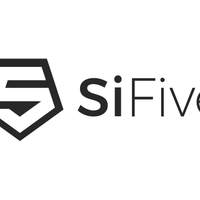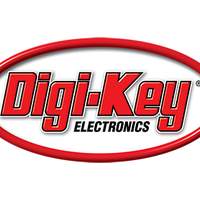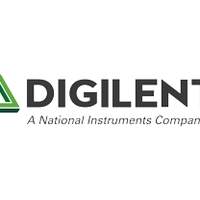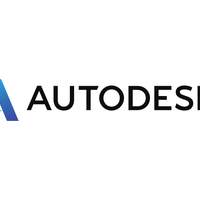Update - not yet live
Sessions
Untitled or The Little Purple Painting with the Little OLED Screen
Installation by Daniel Block
A Raspberry Pi and a one-inch-square OLED screen mounted inside of an acrylic painted canvas. The goal of showing off the vivid colors of the screen is achieved through a nostalgic, monochromatic scene with the screen as the focal point. Reflective titanium dioxide pigment provides an almost high-dynamic range effect, where the painting reveals its details in almost any light. Custom Python code for processing and displaying content. 3D printed inlay secures the Pi and OLED screen to the canvas. Canvas size: 9.75" x 7.75".
Attendee Led Events
Talks and Workshops by You
Host your own talk or workshop by signing up on the sheet outside the room.
You’re Awesome
Installation by Asa and Kat Miller | tinycreative.com
A mixture LEDs and letters brought to you by the duo behind Tiny Creative.
Futel Public Telephone
Installation by Karl Anderson
Live specimen from Futel’s experiments to keep the public payphone alive. Make calls!
Just Intonation Keyboard
Installation by Jim Snow
An electronic musical keyboard instrument designed to play in just intonation. It uses a scale with 31 notes per octave, and the keys are pressure-sensitive.
Mustache Mayhem
Installation by Joe Grand
A mixed media and electronics project designed to challenge the paradigms of personal privacy and entertainment. Based on the short-lived Nintendo Virtual Boy video game console and retro-fitted with a BeagleBone Black Linux computer, this artistic hardware hack provides a singular, entertaining goal: overlay virtual mustaches onto real-world faces for points.
Monolith Synth with LED Visualization
Installation by Paul Stoffregen
An interactive sound synthesis installation with LED visualization.
Be Still, My Low Poly Heart
Installation by Ben Purdy
An interactive sculpture that approximates the physical form of a human heart, created from semi-opaque laser cut acrylic held together with over 80 unique 3D-printed fasteners. The interior houses LEDs and a microcontroller, which allow the object to mirror the individual heartbeats of a human surrogate (through a finger-tip pulse sensor).
Klaxberger Gearheads E-recycling
Workshop by Shawn Price / Friday 12:30-2:30PM | gearheadsrobotics.com
The Klaxberger Gearheads in Gladstone, Oregon is a middle school robotics club that funds its operations through recycling electronic waste. This hands-on workshop will teach you how to turn cold, hard electronic waste into cold, hard cash.
Modular Hardware for 3D Printing (part 1)
Workshop by Jesse Jenkins / Friday 12:30-2:30PM | jesse@hedron.technology
This workshop explores the design and construction of hardware and firmware related to 3D printers, including a briefing on the capabilities of the open source, Crowd Supply-funded JuicyBoard and Juicyware used for 3D printers, CNC machines, laser cutters, and much more.
Pop-up Production
Workshop by Nadya Peek / Friday 12:30-2:30PM
This workshop explores the creative possibilities of production automation. Part design is only the first step in production, after which you have to figure out how to get the geometries you want, how to minimize material waste, how to program machines, and how to manage the parts as they are produced. Bottlenecks for low-volume production are vastly different than their industrial counterparts. What are the tensions between design and production at the makerspace scale?
In this workshop we will run a pop-up production line to explore the different roles and tools in low-volume production. We’ll make a site-specific installation using custom design tools, custom machines made with the Cardboard Machine Kit, and explore automated ways in which we can let time and budget inform our production.
Transfer Secret Messages Through Light with OpticSpy and Tomu
Workshop by Joe Grand and Sean Cross / Friday 12:30-2:30PM | @joegrand and @xobs
OpticSpy is an open source hardware module for experimenting with optical data transmissions. It captures, amplifies, and converts an optical signal from a visible or infrared light source into a digital form that can be analyzed or decoded with a computer. Tomu is a programmable computer that fits inside a USB port and contains two on-board LEDs.
In this workshop, Joe Grand, creator of the OpticSpy, and Sean Cross, of Tomu fame, guide you through the process of creating a system to transfer secret messages in a way that the human eye cannot detect. Attendees must provide their own laptop. OpticSpy and Tomu units will be provided.
Breadboard to PCB
Workshop by Monica Houston / Friday 4-6PM | @zebular13
Have a breadboarded project that you want to turn into something more permanent? This workshop will walk the beginner through getting started in PCB design. Participants will learn how to take a breadboarded project (in this case, a Simon Says game for arduino) and lay it out as a PCB in Upverter. We’ll touch on how to manufacture your boards at home, and best practices for sending them off to be manufactured.
Hacking with RISC-V
Workshop by Drew Barbier and Meadhbh Hamrick / Friday 4-6PM | @SiFiveInc
Learn about this RISC-V thing you have been hearing so much about and how to get started hacking on real RISC-V hardware. The presenters, Drew Barbier and Meadhbh Hamrick, represent the entirety of the SiFive Applications Engineering department.
This workshop sponsored by SiFive
Do-It-Yourself Artificial Intelligence
Talk by Alasdair Allan / Friday 3-4PM | @aallan
The first Google AIY Project kit was made available for free on the cover of the official Raspberry Pi magazine, the MagPi. It proved to be so popular that the magazine sold out in a matter of hours. The kits bring Google’s machine learning algorithms to developers that have limited experience in the field, to allow them to prototype machine learning applications and smart hardware more easily.
The original Voice Kit allowed you to prototype basic, but still useful, voice interfaces for machine learning applications on the Raspberry Pi. While the newer Vision Kit allows you to build object, face, and emotion recognition projects with the Raspberry Pi Zero. We walk through how to setup and build the kits, how to use both the kits’ Python SDK to use machine learning in the cloud, and investigate how to run applications at the edge, on the Raspberry Pi itself, without needing a network connection.
Santa Cruz to Seattle With 2 1/2 Tons of Electron Microscope: A How To
Talk by Adam McCombs / Friday 4-4:30PM | @nanographs
Electron microscopes are really cool. Having one in your own shop is even cooler. Getting it to your shop without breaking it? That’s where the real challenge is. I have facilitated the acquisition, mobilization, and transport of a few of these instruments and every time I learn about some new trick, something else to look out for, or some better way of moving large, sensitive pieces of equipment. My goal in this session is to teach you many of these tips and tricks as I can. This includes a lot of lessons specific to SEM/TEM, like how to break vacuum on a system that doesn’t have power or air pressure to actuate valves, and more generalized information like how to work with transport companies, the different tools that are available for moving heavy pieces of equipment, and what to do when they send a 53’ truck with an extended cab for delivery in a residential area.
PLM: Hardware’s Source Control Management
Talk by Jake Janovetz / Friday 4:30-5PM | @AligniApp
Git, Bitbucket, Subversion, and other tools have made source control management (SCM) a no-brainer for software projects no matter how big or small. What about hardware? Product Lifecycle Management (PLM) is often considered an "enterprise" pursuit. I think it’s time to change this perception.
Beginner Circuit Board Design with KiCad
Talk by Ken Olsen / Friday 5-6PM | makersbox.us
Designing a circuit board and having it manufactured have never been easier thanks to open source KiCad software and OSH Park. We will walk through laying out a very simple LED circuit and submitting it for manufacture.
Hebocon Robot Sumo
Live-action event by Adrian Choy / Friday 7-8PM | #Hebocon
Hebocon is a robot fighting competition "for the technically ungifted" where high-tech robots are banned. Robots are usually made from dollar store toys and spare parts and go toe-to-toe in robot sumo. For Teardown participants this will be your chance to embrace your inner crappiness. Resurrect your broken tech into lean, mean, crappy machines and fight for glory! [Unfortunately, the original organizers of this event couldn’t make it, but that didn’t stop participants from entering the ring doing battle!]
Construction DJ Set
Music by Nadya Peek / Friday 8-10PM | @nstructionco
Construction is electronic music and other things made by Marko Ahtisaari and Nadya Peek. Marko and Nadya met while using a big CNC mill at MIT and have been making music ever since with a bass, a seaboard, and a pile of drum machines.
Open Source Space: What’s happening, including OreSat, Oregon’s first CubeSat
Talk by Andrew Greenberg / Saturday 9-10AM | @andrew1602
The open hardware revolution is working its way into the space industry, mostly through student and amateur CubeSats. Learn about the state and trials and tribulations of open source space, including an update on OreSat, Oregon’s first satellite.
Rapid Prototyping and Linux Kernel Development with the PocketBeagle® Platform
Workshop by Robert Nelson / Saturday 10-noon | @digikey
The newly introduced PocketBeagle® is an ultra-tiny-yet-complete Linux-enabled, community-supported, open source, USB-key-fob computer. By leveraging the Octavo SIP, the PocketBeagle offers complete BeagleBoard functionality and includes 512 MB DDR3 RAM, 1-GHz ARM Cortex-A8 CPU, 2x 200-MHz PRUs, ARM Cortex-M3, 3D accelerator, power/battery management and EEPROM. The board offers lots of GPIOs, on board peripherals, and various expansion capabilities via multiple headers and the Mikroelektronika click board interface. During this course you will learn about pin configuration, how to create a Linux distribution, reconfiguring I/O on the fly and how to leverage expansion modules. Attendees will leave with their very own PocketBeagle and a couple other surprises as well. Limited to 25 participants.
This workshop sponsored by Digi-Key
Applications of the Software Defined Radio
Talk by Danny Webster / Saturday 10-11AM | @LimeMicro
Lime Microsystems has developed a range of products based around its LMS7002 transceiver chip. These products have included USB- and PCIe-based software defined radios (SDRs) suitable for mobile telephony, RF scanners, budget RF test equipment, satellite projects, and amateur radio projects. Thanks to open source software, these products have been used for a wide range of applications, including mobile networks for 2G (GSM) and 4G (LTE) telephones, digital TV, and radio stations. Many of these applications can run successfully on a wide range of modern computers, from very low cost computers, such as the Raspberry Pi, to state-of-the-art processors.
Proto-pasta Filament: How hardware access fuels material innovation
Panel by Alexander Dick and the Proto-pasta team / Saturday 10-11AM | @Proto_pasta
Join us for an interactive hour with Protoplant, makers of Proto-pasta, and learn how they leveraged hardware access to kick start a material business from scratch. This session will begin with an overview (20-30 mins) of our journey in developing Proto-pasta into a leading filament brand and producer, and finish with a panel Q&A with our founding team & community members.
Embedded Hardware Development with Rust
Talk by Jacob Creedon / Saturday 11-11:30AM
Rust provides a new hope for embedded developers who have been stuck in a C/C++ ecosystem that has changed very little over the years. In this talk, we’ll cover what Rust has to offer for embedded systems as we follow along the development process for a hardware MIDI controller product.
Hexabitz: Modularity from Nature to Electronics
Talk by Asaad Kaadan / Saturday 11-11:30AM | @HexabitzInc
Hexabitz is a new kind of electronic prototyping that takes inspiration from both nature and math. This talk presents the basic - and mostly non-intuitive - principles the modular platform was built on, as well as its unusual path from biomimicry into optics and then into electronics.. We will discuss some hardware and software details and the project’s state of development ahead of its upcoming launch on Crowd Supply.
Bits to Atoms, the Making of ‘Be Still, My Low Poly Heart’
Talk by Ben Purdy / Saturday 11:30-noon
Be Still, My Low Poly Heart is an interactive sculpture. The physical form approximates a human heart, created from semi-opaque laser cut acrylic held together with over 80 unique 3D printed fasteners. The interior houses LEDs and a microcontroller, which allows the object to mirror the individual heartbeats of a human surrogate (through a finger-tip pulse sensor).
This talk will recount the journey of making Be Still, My Low Poly Heart, from a crude paper prototype all the way to the final large scale acrylic hull, as well as the electronics and software that run the interactive behavior. The pivotal tools and technologies that went into the making of the piece will be highlighted as well as the lessons learned along the way.
Open Pitch Sessions
Moderated by Crowd Supply Staff / Saturday 11:30-noon | @crowd_supply
Have an idea for a project or product, but not sure if or how to pursue it? Come share your ideas, good or bad, and get instant feedback from Crowd Supply staff and the audience at large.
Keynote
Talk by Andrew “bunnie” Huang / Saturday 1-2PM | @bunniestudios
Long-time Crowd Supply creator and adviser Andrew "bunnie" Huang will report on some of his latest projects and perspectives.
WTFPGA
Workshop by Joe FitzPatrick / Saturday 2-4PM, repeated 4:15-6:15PM | @securelyfitz
You can probably whip up code to print “Hello World” or program a micro controller to flash an LED, but have you ever tried doing either by directly defining hardware logic?
This workshop is a series of exercises that will give you a basic understanding of what FPGAs are, how they work, and how to program them in Verilog. You will flash LEDs, display salutations, use switches and buttons as input, do some type conversion, and then implement a simple calculator.
All hardware and software is provided for use during the workshop. Understanding of basic binary operations (AND, OR, NOT) is essential background.
There will be two sessions, each limited to 30 participants.
This workshop sponsored by Digilent
Creating Conference Badges
Talk by Jay Margalus / Saturday 2-2:30PM
This talk will cover the development of the Thotcon 0x9 badge and explore various challenges, opportunities, and design considerations faced when creating a game experience for custom-built, embedded, interconnected systems. It will explore these topics through the use of the Thotcon 0x9 and 0x8 game badges as case studies in hardware and software development, as well as human-computer interaction and game design. We’ll touch on the design of these systems, and highlight material differences between both software design, and the design of physical artifacts. We’ll also talk about making games!
Standard Operating Procedures (SOPs) for Open Source Electronics
Talk by Andrew Greenberg / Saturday 2-2:30PM | @andrew1602
Open source electronics are an amazing thing. Let’s cultivate that by doing it right. Just publishing your CAD files isn’t going to cut it: let’s actually go through all the files you need to have a successful open source project that doesn’t make your users hate you. We’ll discuss readmes, short-but-kickass requirements documentation, schematics, board layouts, bill of materials, and ideas for documenting the project’s outcome and current state.
Futel: A Technology So Advanced We Leave It Out On The Street All Night
Talk by Karl Anderson / Saturday 2:30-3PM | futel.net
Part public service and part public art, Futel is keeping the payphone alive by installing them in public locations and offering free calls and interactive audio experiences. Why do we do it? Is it sustainable?
Now that we are finally living in the cyberpunk dystopia promised in the 80s, we are poised to seize this moment. What aspects of the project make it effective, and how can we apply them to other creative technological projects? Which constraints give us the freedom to use our abilities to effect change, or at least confuse people and delay boredom?
Transforming New Product Development with Open Hardware
Stephano Cetola / Saturday 2:30-3PM | @stephano
Traditionally, product development and intellectual property have been thought of as inextricably bound together. The rise of open source hardware over the past decade has challenged these ideas by creating new markets that thrive on standards of sharing and transparency. Even if your upcoming product cannot be open source, there is still enormous value to be gained and given back to the community. This talk highlights specific use cases where OSH played a pivotal role in bringing to market a series of embedded devices, shows how OSH can be leveraged to quickly get prototypes and demos in the hands of potential customers, and discusses the role of open source hardware in educating a new generation of embedded developers.
DFM with your CM: How to save time and money
Talk by Andy LaFrazia / Saturday 3-3:30PM | controltek.com
Involving your product’s manufacturer early in the design phase will save you time and money in the long run. Maybe your product is just an idea. Maybe you have started your product design. Maybe you even have a prototype. But is your product ready for manufacturing? This session will show you how partnering with your electronics design and contract manufacturer early in the design phase will avoid costly delays.
Signet: An implementation walkthrough, hacking possibilities, and future development
Talk by Neils Nesse / Saturday 3-3:30PM | nthdimtech.com
Signet is a free and open source and open hardware portable USB device that stores passwords and a variety of other personal information in an encrypted memory, and can enter them into applications by acting as a USB keyboard.
In this talk I will demonstrate the latest version of Signet and discuss various security principles and how they guided the hardware and software designs. I will also discuss features I am planning on adding and how they will be implemented.
Hacking Appliances and Prototyping Next-generation Technology with Netduino and Xamarin
Talk by Bryan Costanich / Saturday 3:30-4PM | @wildernesslabs
There is a whole class of products out there that haven’t been created yet, but if you can develop apps, you can build them! Join Bryan Costanich (former VP at Xamarin) and get inspired to build your own connected things as he walks through hacking various appliances including a dehydrator, coffee maker, and others into connected things using Netduino and Xamarin. Come learn how Netudino.Foundation makes creating connected things in C# a piece of cake, with a massive library of peripheral drivers for sensors, LCDs, etc., and a handrolled API that makes them a easy to use.
Making Open Source Schematics Not Suck
Talk by Andrew Greenberg / Saturday 3:30-4PM | @andrew1602
Open source hardware is about sharing and extending. And you can’t do that if you can’t understand the schematic! No matter what CAD tool you use, there are a few simple things you can do that will drastically improve everyone’s ability to read your schematic - even your future self. We’ll discuss design patterns, data flow, power flow, actual power symbols, design blocks, buses, critical annotations, and all the things that make a schematic beautiful to read and a joy to use. Bonus: examples, and resources.
Programming for the Eye: Understanding Graphics and Light
Talk by Zach Archer / Saturday 4:15-5:15PM | zach@controlzinc.com
Beautiful graphics are easy to appreciate, yet graphics programming is often hard to understand. This talk covers getting started with graphics programming, honing your visual skills, and keeping curiosity and creativity alive during development. We’ll look at projects that combine hardware, sensors, and 3D printing, to produce extraordinary pieces of custom lighting. This talk includes technical details for all skill levels, and actionable advice for creators, code artists, and anyone who dreams big.
Quick Enclosure Design with Fusion 360
Talk by Kevin Schneider / Saturday 4:15-5:15PM | @adskFusion360
Whether prototyping or designing your next product, enclosure design can be difficult to coordinate between your electronics design and mechanical design. This talk looks at several examples of how to make your next enclosure project easier using Fusion 360.
Eating Rabbits: A guide to using Python to conquer FPGA video systems
Talk by Tim ‘mithro’ Ansell / Saturday 5:15-6:15PM | @mithro
Python is generally considered a high-level language a long way from hardware, which actually makes it an awesome tool for helping with the design and creation of hardware! Python was essential in developing the HDMI2USB.tv open source firmware and hardware for video capture. The system has been in use since late 2015 and used at numerous conferences such as Linux.conf.au, DebConf, and various PyCon conferences around the world. This talk will cover Python hardware description languages (HDLs) for creating "gateware" for FPGA chips or even real IC design; Python tools for deploying, programming and debugging embedded systems; and Python scripting for hardware schematic layout and design rule checking.
KiCad: Designing with Complex Shapes
Talk by Andrew Sowa / Saturday 5:15-6:15PM | @JunesPhD
While most PCBs can be simple rectangles, sometimes the design requires more complex geometry. EDA tools don’t always make this simple, so we will go over a few KiCad tips to make it easier. In this talk you will learn how to import unique board shapes from Fusion 360, create arbitrary fill zones using images, and embed high-frequency RF filters. We will use multiple software packages to enhance KiCad’s performance beyond its obvious use.
Glow Up Your LEGO with Open Source Electronics
Workshop by Rachel Hellenga / Saturday 9-10PM | Conducty.com
Build glowing, interactive creations and add sparkle to the evening’s festivities with programmable LEDs and LEGO. Discover how to use conductive tape to embed microcontrollers and LEDs in everybody’s favorite construction toy.
How to Think About Security for Your Hardware Project
Talk by Joe FitzPatrick / Sunday 9-9:30AM | @securelyfitz
The process of designing, implementing, publishing, supporting, and using a hardware project is complicated enough without having to worry about security. Whether you’re publishing a software library to interface with your hardware device, or worried someone’s going to reprogram your art installation, I’ll go over a few security-related points to consider at each step of a product or project’s lifecycle. I’ll share a few examples of hardware security issues I’ve encountered, and simple solutions that have helped. I’ll wrap up with a checklist of things to keep in mind for your current and future projects. Hopefully you’ll come away knowing how to make some minor improvements to your projects that will go a long way towards making them more secure.
Dr. Frankendrive or: How I Learned to Stop Worrying and Recover Data
Talk by Nik Lyons and Chris Berge / Sunday 9:30-10AM | neuralearth.io
In this presentation-demo hybrid, we will cover basic troubleshooting and safe suggestions for the DIY data recovery enthusiast. The focus will be on Seagate branded drives, though we will also briefly discuss what makes the Seagate HDD simpler to fix than Western Digital when using these specific methods. In addition to hardware repair techniques, we will also present a live demonstration of a few different software solutions for specific issues with Seagate external drives. We will touch on certain criteria that must be met in order for a successful recovery to take place outside of a professional data recovery lab. The talk is targeted at those with fundamental awareness to beginner level understanding, though we are happy to indulge experts, too.
Firmware: Hardware’s sneaky passenger
Talk by Chau Doan / Sunday 10-10:30AM
In today’s world of digital everything, what does it mean to be hardware? Are devices these days simply an assembly of nuts, bolts, wires, fiberglass, and doped silicon, or is there more to it? Once we apply power, things tend to get more complicated. Firmware is an often misunderstood aspect of hardware development. It gets lumped into the software category, but can easily take on a life of its own. Written on microcontrollers (MCUs) and system on chips (SoCs), firmware allows everything from the blinking of LEDs to full fledged operating systems. However simple or complex, well-crafted firmware is the bridge between the physical hardware and the intended application.
Searching for the Light: Using OpticSpy to Receive Optical Transmissions
Talk by Joe Grand / Sunday 10-10:30AM | @joegrand
OpticSpy is an open source hardware module for experimenting with optical data transmissions. It captures, amplifies, and converts an optical signal from a visible or infrared light source into a digital form that can be analyzed or decoded with a computer. With OpticSpy, electronics hobbyists and hardware hackers can search for covert channels, which intentionally exfiltrate data in a way undetectable to the human eye, add data transfer functionality to a project, or explore signals from remote controls and other systems that send information through light waves. Crowd Supply hosted a successful campaign for OpticSpy in March. This talk explores the history of optical communications, discusses details of OpticSpy’s operation and calibration, and gives some demonstrations of the unit in action.
PCB Portrait Workshop
Workshop by Andrew Sowa / Sunday 10-noon | @JunesPhD
Did you ever want to be immortalized in the medium you use everyday? Maybe can’t live without a two-layer circuit board of your pet on your desk? In this workshop we will take a picture of your choice and turn it into a manufacturable PCB design. You will be guided through the process from image file to gerber files using open source software. This workshop will require a laptop with Inkscape and KiCad pre-installed, as well a pre-selected image.
How to build a BOM: Sourcing and open source
Talk by Nadya Peek / Sunday 10:30-11AM | @nadyapeek
The accessibility of open source hardware is predicated on reliable low-volume component sourcing. How can you best design a Bill of Materials (BOM) for a toolkit or infrastructural hardware contribution? Reproducibility of parts and assemblies is key! How do you make it easy for others to build on your designs? Drawing from experiences in designing open source hardware machine building kits, I give recommendations for reproducible design BOMs.
How to Make Your Own Designs Hackable
Talk by Greg Peek / Sunday 10:30-11AM | @SiliconFarmer
Too often, we assume our first design will be perfect when designing custom PCBs for our projects. Unfortunately, this assumption often leads to a frustrating experience while debugging the board, and may lead to a series of board revisions before the board is usable. Learn design, documentation, and layout techniques to make your hardware designs easier to debug and quicker to rework, and increase your chances of the first version working and the second version being perfect.
More Than Music with MIDI, Tiny Computers, and JavaScript
Talk by George Mandis / Sunday 11:00-noon | @georgemandis
MIDI is an established protocol from 1983 that helps musical instruments speak to one another. With the introduction of WebMIDI to Chrome, the mature package ecosystem available to Node, and the prevalence and affordability of single-board microcontrollers like Arduino, Espruino, and others, it’s easier than ever to build and interact with custom hardware directly in the browser! In this talk, I’ll cover how MIDI is suddenly relevant again and can be used for many creative applications beyond music. I’ll give an overview of the technologies and introduce you to interactive demos using commercially-available and home-brewed MIDI controllers.
Learning Electronics and Software - the Cheesy Way
Talk by Alvaro Prieto / Sunday 11-11:30AM | @alvaroprieto
My goal was to get better at circuit design, board layout, and software, so I decided to take on a new project: cheesemaking! In order to make Brie, I needed a temperature and humidity controlled fridge. In developing the necessary circuits, I ran into many problems and learned about many topics, such as using solder paste and stencils, having a board manufactured by a third party, dealing with strange USB issues, making cheese-shaped circuit boards, making cheese-shaped cheese, capturing and plotting data with Python, adding proper load capacitors to crystal oscillators, and many more.
Hacking Health: Open source hardware and medical devices
Talk by Ashwin K Whitchurch / Sunday 11:30-noon | @ProtoCentral
Healthcare and fitness devices do not always have to be black boxes concealing what is going. In this talk, I’ll describe our journey of developing crowdfunded, open source medical devices, looking also at the future of these devices. I will also talk about how open sourcing these devices has opened up a whole new world of possibilities.
A Definitive Guide to Building Production Hardware in EAGLE
Workshop by Matt Berggren / Sunday 1-3PM | @ADSKEAGLE
This workshop will take newcomers and professionals alike through the process of designing professional, production-grade hardware using Autodesk EAGLE. And though we’ll be learning how to get the most from EAGLE, this hands-on workshop will go beyond the tools to examine the processes used by professionals designing products at scale. Issues of design methodology, circuit technique, PCB layout technique, industry standards, libraries and reuse, data management, interoperability between the eCAD and mCAD domains, and more will all be discussed as we build a real design from start to finish.
This workshop sponsored by Autodesk
MicroPython on the ESP8266
Workshop by Thomas Hudson / Sunday 1-3PM
A fun and easy way to access powerful hardware: this workshop will combine MicroPython, Wi-Fi, WS2812 pixels, a touch sensor, an ultrasonic rangefinder, and an OLED display with the ESP8266. We’ll run through a bunch of Python scripts pre-loaded onto your very own ESP8266. We’ll blink some addressable LEDs, connect to a network, and display data on a tiny OLED display, all of which you can take home and continue building on. Limited to 15 participants.
This workshop sponsored by OSH Park
Signet Development Workshop
Workshop by Neils Nesse / Sunday 1-3PM | nthdimtech.com
Signet is a free and open source and open hardware portable USB device that stores passwords and a variety of other personal information in an encrypted memory, and can enter them into applications by acting as a USB keyboard. In this workshop, you’ll be set up to develop on a Signet device and guided through the process of making changes and improvements.
Design and Reverse Engineering: Playing on both sides of the field
Talk by Jeremy Hong / Sunday 2:30-3:00PM | @ElectronicsbyJH
Designing circuits and laying out a printed circuit board (PCB) can be complicated and time-intensive. It also happens to be a very expensive process as well, which is why there are many shortcuts and tricks that design engineers use to cut down cost and time of development. Being aware of these shortcuts and tricks can also save time when reverse engineering hardware. Implementing security and countermeasures on PCBs is often the last priority for design engineers. I will point out how understanding the hardware design engineering process can directly lead to finding vulnerabilities in hardware.
State of the Crowd
Talk by Josh Lifton / Sunday 3-4PM | @crowd_supply
A glimpse into the inner workings of Crowd Supply, where it’s been, where it’s going, and what we’ve noticed along the way.
Open Pitch Session / Lightning Talks
Moderated by Crowd Supply Staff / Sunday 4:15-5:15PM
Have an idea for a project or product, but not sure if or how to pursue it? Come share your ideas, good or bad, and get instant feedback from Crowd Supply staff and the audience at large. Alternatively, come give a five-minute lecture on any topic of interest.
More Than Music with MIDI, Tiny Computers, and JavaScript (Workshop)
Workshop by George Mandis / Sunday 4:15-6:15PM | @georgemandis
This is a workshop version of the talk by the same name. You will use (and take away with you) a Circuit Playground Express to explore how to control real hardware through a web browser using MIDI.
This workshop sponsored by Adafruit
HeartyPatch Workshop
Ashwin K Whitchurch / Sunday 4:15-6:15PM | @ProtoCentral
Come hack on HeartyPatch, a wearable ECG patch with heart rate variability (HRV) monitoring that’s open source, affordable, and Wi-Fi/Bluetooth connected. Based on the ESP32.
Modular Hardware for 3D Printing (part 2)
Jesse Jenkins / Sunday 4:15-6:15PM | jesse@hedron.technology
This workshop explores the design and construction of hardware and firmware related to 3D printers, including a briefing on the capabilities of the open source, Crowd Supply-funded JuicyBoard and Juicyware used for 3D printers, CNC machines, laser cutters, and much more.
